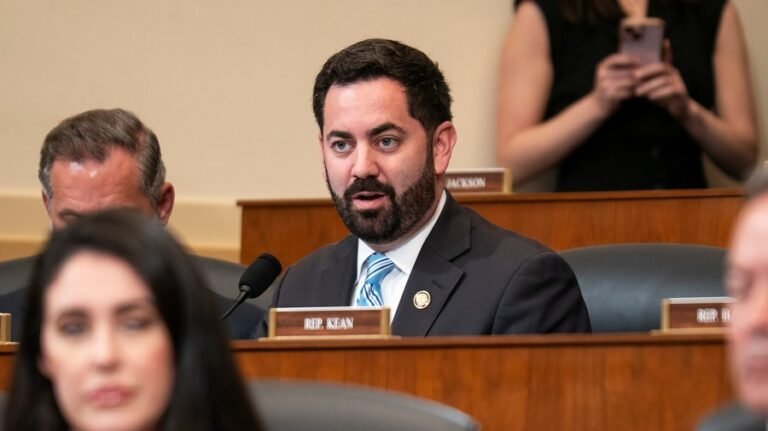
On March 23, 250 years ago, almost four weeks before the Battle of Lexington and Concord, Patrick Henry rose at the Second Virginia Convention to call on Virginia to arm for the Revolutionary War that he saw as inevitable. He finished declaring emphatically, “give me liberty, or give me death!”
Today, Henry’s speech has become a favorite of the Tea Party, MAGA and other conservative groups.
They deeply misunderstand Henry, seeing his speech as simply a call for personal liberty, to do what one wants: my rights, my freedom, regardless of others. Henry’s famous call-to-arms, sadly, has played a role in Americans’ fixation on “what’s in it for me.”
The fixation on personal liberty over the interest of others (or what Founders would have called “license”) has become a bedrock of our society and exacts a great price on our communities and all of us.
Henry and the other Founders would be appalled.
I was reminded of this with the flood of news and social media stories about MAGA supporters angry, bitter and confused because the Trump administration is hurting their farms, revoking their loans or business contracts, deporting family or friends, firing nurses at their VA hospital, firing friends — the list seems endless.
Among the most interesting of these stories is the comment from Jesse Watters, a Fox network host. Watters, a major MAGA supporter, has cheered Trump’s efforts to burn to the ground large parts of the government. But when a friend of his lost his job, Watters suddenly seemed to wake-up, as if someone had thrown cold water in his face. He reminded his listeners that we “need to be a little bit less callous” as millions face loss of jobs, loss of business, loss of services, loss of benefits, etc.
He is right, but these stories point to something even more fundamental.
If you asked Americans, especially conservatives, what ails the nation, many will quickly come to talking about the decline of community. And they are right.
From the loss of churches that were at the center of neighborhoods, to the decline of civic organizations that used to unite people across differences, to the sad phenomenon of “bowling alone” (when the nation used to be filled with bowling leagues), American communities have suffered.
We have turned inward, fed by the screens at which we stare.
In fundamental ways, this sad phenomenon is the result of the growth of “classic liberalism” — a focus on my rights, my interests. The alternative philosophy, prominent among America’s Founders, is “classic republicanism,” focused on service to community and human virtue.
This focus on liberalism has been at the root of attacks on the federal government. Since at least Ronald Reagan, people have been fed, over and over again, the story that the government is the problem, or worse, the enemy. If a government policy does not seem like something I want, or if it is something that I don’t see the need for, or something that I would not approve of, the government is wrong and needs to be cut down to size.
Watters is right. We need a little compassion, a little empathy.
There are many government programs that I don’t need, perhaps don’t want, but they are part of a government that serves neighbors and co-citizens, created by our elected representatives for the good of our people.
Take, for example, the Consumer Financial Protection Bureau that Elon Musk, with President Trump’s apparent indifference, is seeking to eliminate. It protects vulnerable consumers from bank overcharges, fraudulent loans, and the like.
The Trump administration has already dismissed several of the bureau’s enforcement actions against big banks for defrauding consumers of billions of dollars.
I suppose I don’t need the bureau. We have financial advisers who watch these things; we only take out mortgage loans reviewed by lawyers.
I suppose I could even complain that it is costing me money — some small infinitesimal part of my tax dollars (although, in fact, it has made money for taxpayers by collecting billions of dollars in fines from fraudulent financial practices). But all of this misses the point.
I may not “need” the Consumer Financial Protection Bureau, but millions of Americans do — my neighbors.
The same is true of almost all government functions. I don’t need the Occupational Safety and Health Administration regulations protecting workers from exploitative work practices, but others do. My grandfather, a steelworker, could tell horrific stories about abuses before the unions and government got involved.
I don’t need an educational loan now, but millions do.
And these government systems strengthen our nation. Paying to educate American students, for example, makes for a more vibrant economy, a more informed electorate, a more engaged community. We all pay the price when our educational system is inadequate, and we all share the benefits when our citizenry is well-educated.
Of course, this does not mean that we have to agree with everything that the government does. Or that we shouldn’t work for reform and improved efficiency.
Should we oppose government action of which we disapprove? Absolutely. Reform government inefficiency, locate real fraud and remove it? Overwhelming support.
But indiscriminate destruction of agencies that our friends and neighbors rely upon, agencies created by Congress and signed into law, all at the direction of the richest man in the world and his enabler? It is un-American, dangerous and, as Watters belatedly realized, shows a callousness to our neighbors.
Watters is right. We need to start with some compassion for our neighbors. Our communities, and our nation, depend upon it.
While millions are cheering Musk’s efforts to take a meat ax to the government, because they don’t yet see how it will affect them (although they will, in time), we all need to try to understand how these changes impact our neighbors and communities.
John Ragosta, Ph.D. JD, was formerly acting director of the Robert H. Smith International Center for Jefferson Studies at Monticello. His most recent book is “For the People, For the Country: Patrick Henry’s Final Political Battle.”


